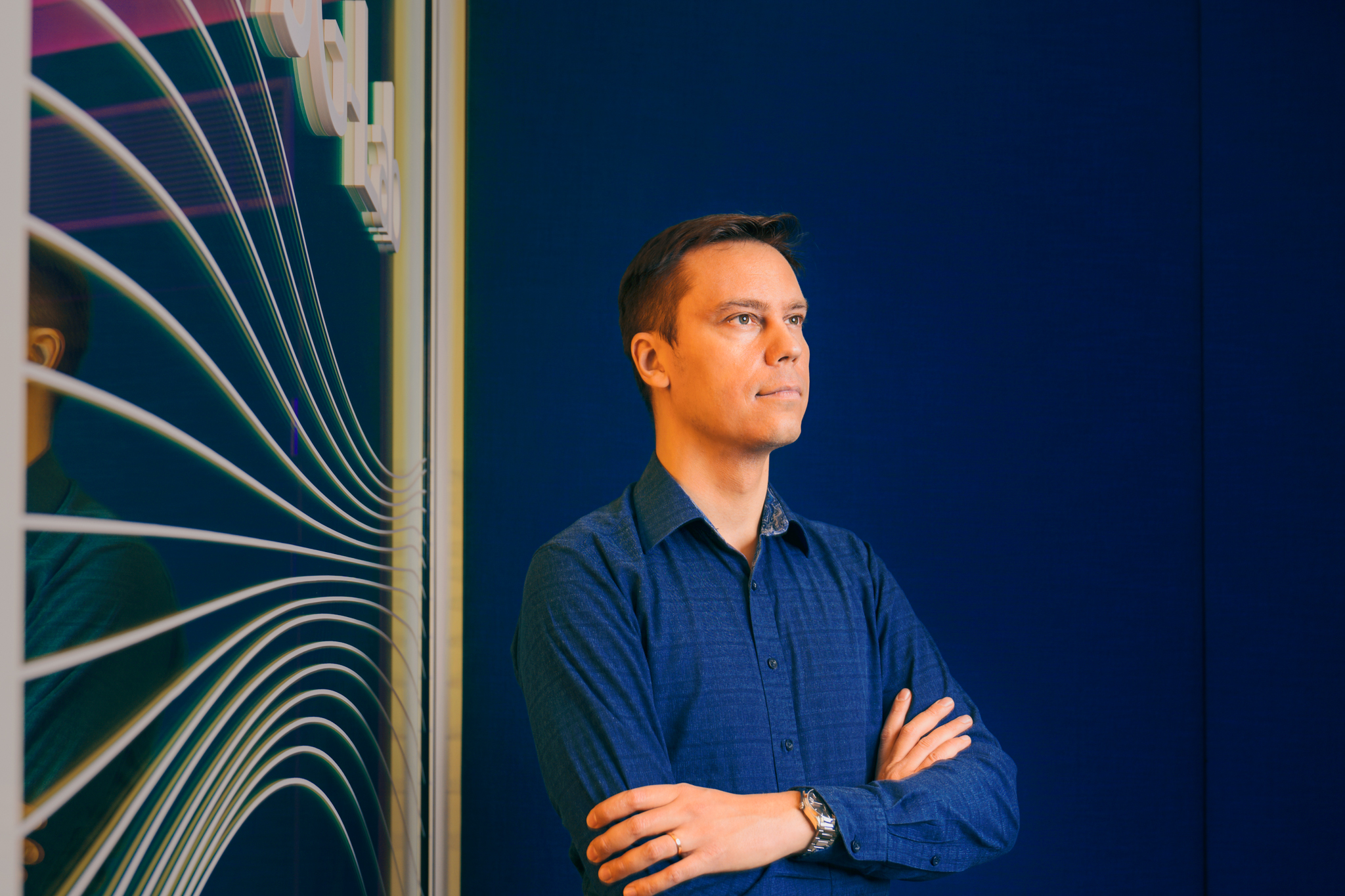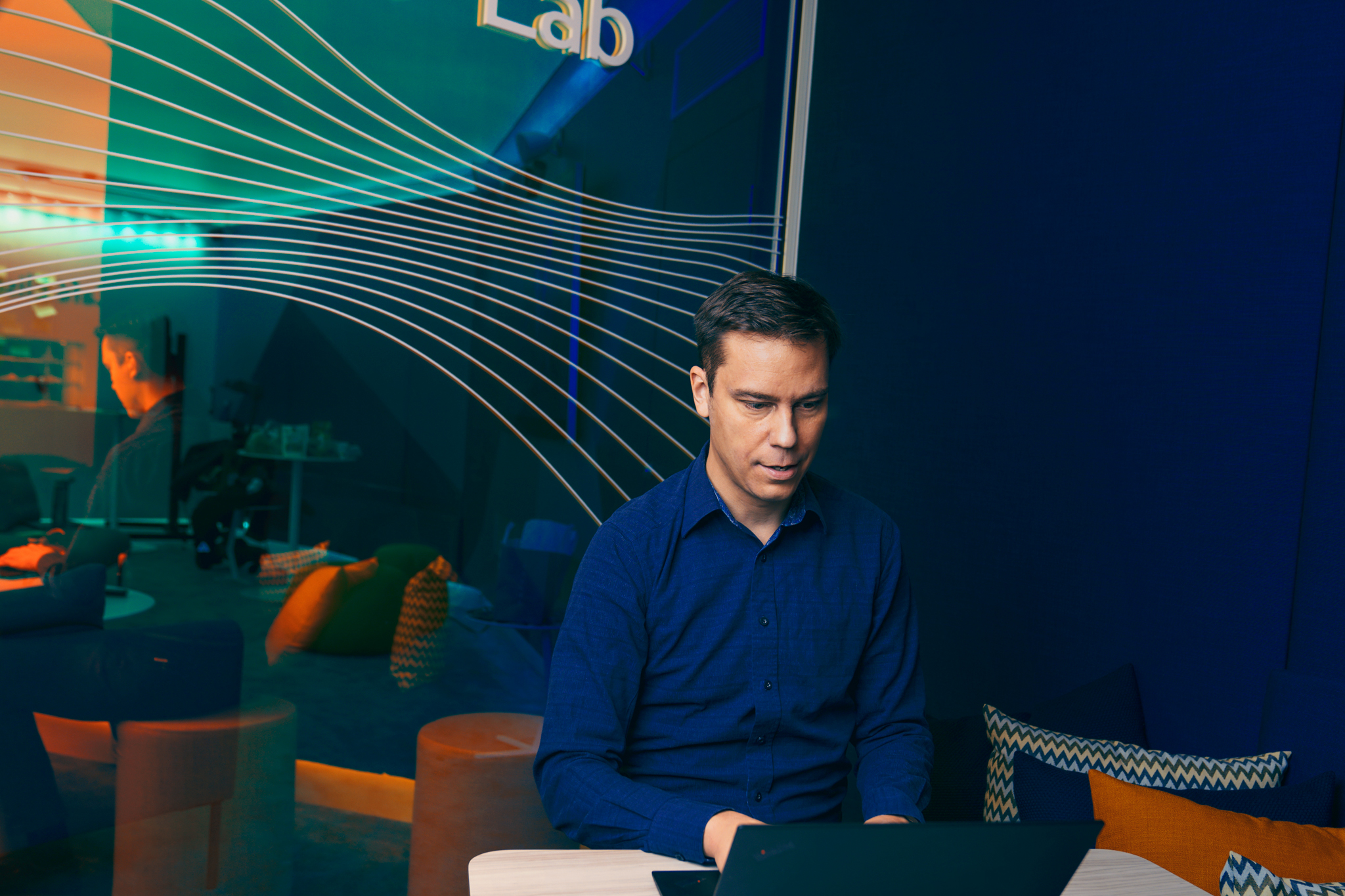Which three things are causing Antti Seppälä, Head of Digital Operations at Elisa, the most concern?
1. The decision-making power of technical specialists
Antti joined Elisa in September 2010. Back then, Elisa was already developing innovative services utilising the latest technology, with the vision of being a modern software company developing consumer services. Antti was working as a software developer at the time, and when the services his team were developing became an example of pioneering use of the public cloud, Antti realised that he knew quite a lot about the topic. He changed track to become a DevOps specialist and architect.
Five years after that, he went from leading this issue to leading people as well. Now Antti leads the unit that develops tools that enable Elisa’s internal teams to improve the way they work. The people in Antti’s unit are as engaged in complex automation projects and network optimisation as they are in software development.
“These days, my role is to keep the wheels turning, to take care of budgeting and resources, to recruit people with the skills we need, and to sell our expertise in-house to people that would benefit from automation. So, I’m also involved in everyday development work, and I want to keep my finger on the pulse of our workload”, Antti says.
According to Antti, in technical organisations like Elisa, trust comes from having leaders who can keep things moving and also understand the technical side of things, so they can properly discuss how to handle practical issues. The word “leader” sounds a bit strange to Antti, as experts often make decisions for themselves and Antti is more in a position of removing obstacles to success.


